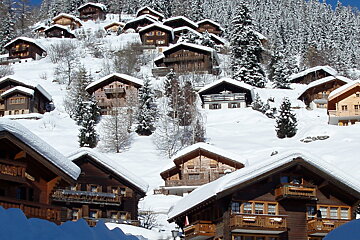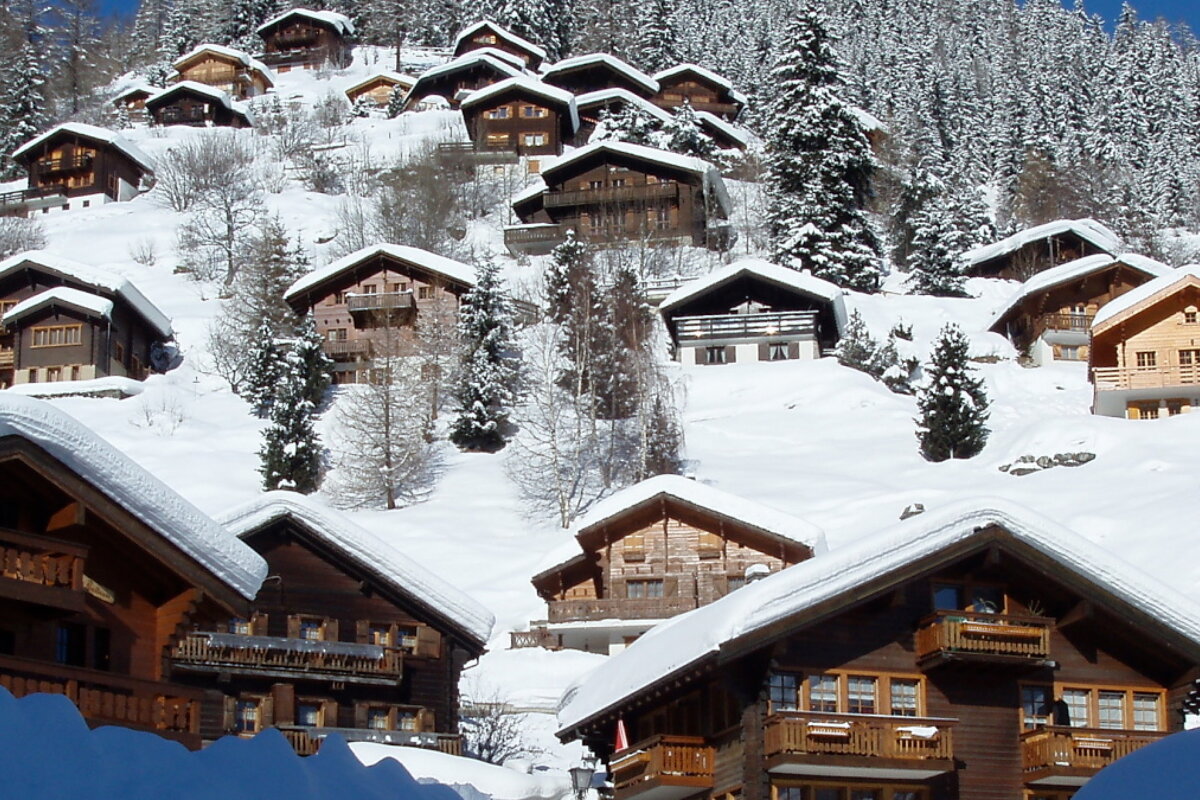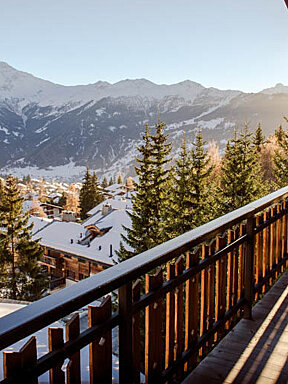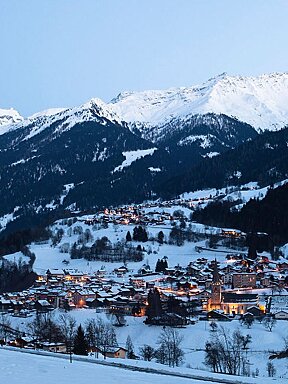Buying Property in Verbier
Discover the Verbier property buying process
People consider buying real estate in Switzerland for numerous reasons: lifestyle, quality of life, holiday purposes, a permanent home, education, relocation for business reasons, investment and security.
All of the various reasons for the purchase of real estate have very different consequences, not only from a tax and legal point of view, but also regarding succession, financial structuring and asset allocation. In addition, the costs for the acquisition, the holding and the sale are different depending on each specific case. The political, legal and economic stability of Switzerland as well as the stable Swiss Franc (CHF), are the main reasons for a strong and long term investment in Swiss property. This is supported by the very high quality of life that Switzerland has to offer with low crime rates, outstanding construction, superior education and excellent medical facilities.
The procedure to acquire, hold and sell real estate and its taxation are primarily regulated by cantonal and communal laws. The following information, prepared for Frank Knight (the authors of this article) by Transforma Consulting is a general introduction to this complicated legal system. In practice, each individual transaction must be analysed according to local laws and regulations and expert advice must be sought.
According to the federal law regarding the acquisition of real estate by persons abroad (also referred to as ‘Lex Koller’), the purchase of residential real estate is restricted in Switzerland for foreign citizens. Based on the bilateral agreements between the EU and Switzerland, Swiss law facilitates the purchase of residential real estate for EU citizens. In a nutshell, real estate can be purchased under the following conditions:
- Prohibited - Residential real estate purchase outside the designated holiday zones, by non-Swiss citizen without residence
- Quota system - Holiday home purchase by person without residence permit
- No restrictions - Residential real estate purchase by EU/EFTA citizen with residence permit (permits B and C)
- One property as principal residence - Residential real estate purchase by non-EU citizen with residence (permit B)
- No restrictions - Residential real estate purchase by non-EU-citizen with permanent residence permit (permit C)
- No restrictions - Commercial real estate
Tax implications of taking up residency and Inheritance tax
Difference between EU and non-EU citizenship for the residence permit - As mentioned above, there are no restrictions for the purchase of residential real estate in Switzerland by EU citizens (permits B or C). Non-EU citizens need to wait for a permanent residence status (permit C) to purchase residential real estate other than their principal residence.
Purchase and sale of real estate as a resident person - With the exception of Zürich and Schwyz, all cantons levy a transfer tax on the purchase price or the tax value of the property. In most cantons the purchaser is liable for the transfer tax, whereas in some cantons 50% tax is paid by both parties or by one party according to the purchase contract. The transfer tax rate is calculated differently in each canton and varies in general between approximately 0.5% and 3%. In addition, most cantons levy a land register fee of a few tenths of a per cent, reaching 1% in exceptional cases. In some cantons, the notary charges for his services according to the time spent, and in others, fees are based on a percentage of a few tenths of a per cent of the purchase price. Traditionally, all real estate agency fees are paid by the seller unless agreed in advance or if a buyer signs a search mandate to provide a bespoke search service.
Tax implications of taking up residency - In general, one of the consequences of a permit B is that the person is considered to be a tax resident in Switzerland according to Swiss laws. According to Swiss tax law, worldwide income and worldwide wealth are taxable in Switzerland and have to be declared. As taxes are levied on a federal, cantonal and communal level, the tax rates vary in each commune and are progressive. The lowest maximum income tax rates are at approximately 20%, the highest at around 42%. In addition to the worldwide income, a deemed rental value of the Swiss real estate will be taxed as income in Switzerland. On the other hand, maintenance costs and mortgage interests are fully deductible from the taxable income. Worldwide movable assets and real estate in Switzerland are subject to cantonal and communal wealth taxes. Wealth tax is levied on net assets, consequently mortgages and other loans are deducted from the tax value of assets. Net assets are taxed at progressive rates which reach a maximum between approximately 0.1%-1% depending on the cantonal and communal tax rates.
Lump sum - For non-Swiss citizens without any gainful activity in Switzerland, a large number of cantons provide for a taxation according to the rental value (typically multiplying the annual rental value by 7) of the Swiss property as well as the living costs and does not consider a client’s worldwide income. Furthermore, tax authorities require a minimum tax burden of at least CHF 120,000 to grant lump sum taxation in the case of real estate with a relatively low tax value. This so called lump sum taxation (Pauschalbesteuerung, forfait fiscal, tassazione globale) has been confirmed by initiatives on a federal level in 2014. The new minimal taxable income is CHF 400,000 for the federal taxes.
Succession for Swiss residents - As long as the Swiss residence is considered a principal residence by Swiss international tax and private law rules, succession will be subject to Swiss rules and taxes. Under Swiss inheritance law, forced heirship rules are applicable in relation to relatives. Swiss international private law allows foreigners to ‘opt-out’ if the last will and testaments falls under another governing law. Gift and inheritance taxes are currently only levied on a cantonal and communal level. In most cantons there is no taxation between spouses as well as direct descendants. While some cantonal tax laws do not levy any gift and/or inheritance tax, others impose gift and inheritance taxes up to approximately 40% for non-related persons.
Purchase of holiday home by non-residents
Conditions - According to Lex Koller, the purchase of a holiday home is subject to the following conditions: w Authorisation of the purchase by the relevant authorities w Only within a tourist commune (Village) w Within the annual permit quota for each canton/commune (Village) w Personal use only. The owner may only rent the property periodically, not permanently w Maximum of 200 sq m of official living area (up to 250 sq m can sometimes be approved) w Maximum of 1,000 sq m of land (up to 1,500 sq m can sometimes be approved) In the whole of Switzerland, only 1,500 holiday home purchase authorisations are granted to non-residents each year. The Swiss government allocates the regional quotas according to the number of tourism facilities and new developments as well as the proportion of land. The cantons Valais, Grisons, Berne, Ticino and Vaud receive an allocation between 140 and 330 authorisations each, the other cantons receive less than 100. If the purchaser/vendor acquired the property as a ‘person abroad’ under the quota system, no new authorisation will be necessary and the purchase does not fall under the current quota.
Tax implications of the purchase - The tax consequences for the purchase and sale of a residential property are explained above.
Tax implications of the holding of a holiday home - In Switzerland each property’s value is estimated on a regular basis by the communal or cantonal authorities to determine a deemed rental value for the income tax and a tax value for the wealth tax. As part of owning real estate in Switzerland the owner becomes personally liable for income and wealth taxes in connection with the property. Usually, holiday homes are taxed based on the deemed rental value and tax value at the rates applicable to worldwide income and wealth. For the sake of simplicity, the tax authorities may agree to apply maximum tax rates without declaration of worldwide income and wealth. The tax rates are the same as those for Swiss tax residents. Some cantons also impose a lump sum tax for holiday homes. In general, mortgage interest and maintenance costs are not deductible.
Tax implications of the sale - In some cantons a sale is only allowed after a minimum holding period (typically 5 years). The capital gain is taxed on a cantonal and in some cantons on a communal level as well. The tax rates are progressive depending on the amount of realised capital gain and on the holding period, varying from approximately 10%-50%.
Succession of a holiday home - As authorisation to acquire real estate as a non-resident person is granted to the property and not the person, no new authorisation according to Lex Koller should be necessary for donation or inheritance, as long as the recipient is not already an owner of a holiday home in Switzerland. The inheritance from a deceased person who was resident abroad does not generally fall under Swiss inheritance law. However, for the change of property ownership property Swiss laws may apply. In addition, real permanent residents. This will potentially increase the value of holiday residences due to a future shortage of availability within the next 5 years.
Restrictions for building new holiday homes since 1st January 2013 - In March 2012, a referendum (so called Franz Weber initiative) was accepted by the Swiss population to limit the building of new holiday homes in tourist regions to a maximum of 20% of the constructible area of a commune. Currently more than 500 tourist communes exceed this limit. As a consequence, no new building permits are being authorised unless for use by permanent residents. This will potentially increase the value of holiday residences due to a future shortage of availability within the next 5 years.
Purchase of commercial property
The purchase of commercial real estate is not subject to restrictions for foreigners, therefore no residence permit or purchase authorisation is required. The property may be used for the owner’s business or can be rented out to generate revenue. Commercial real estate may also be purchased solely as an investment. estate in Switzerland is subject to the cantonal inheritance tax (subject to each individual’s circumstances, please seek advice).
Financing & Structuring of purchase of Real Estate
Assets or loan - Financing the acquisition by cash purchase is one possibility. Swiss banks usually grant mortgages of up to 80% of the property value based on their own valuation. For luxury real estate and holiday homes, mortgage financing up to 60% is usually available. The interest level in Switzerland is one of the lowest in Europe.
Purchase through a structure like a Swiss Company, a foreign entity or a Trust/Foundation - Holiday homes may only be acquired directly by the beneficial owner. A married couple is allowed to acquire only one holiday home in Switzerland. A purchase of a holiday home by children is authorised, provided that they are over 18 years old and are using their own assets. Residential real estate for a principal residence is usually purchased directly by the permit B or C holders. In certain cases, a Swiss or foreign entity can be used as legal owner of the property but the permit B or C holder has to be the main beneficial owner. Purchase through a trust or a foundation is possible as long as the beneficial owner of the structure is entitled to own real estate in Switzerland. Commercial or residential real estate as investments are frequently acquired using a Swiss or a foreign legal entity. The choice of the structure and its jurisdiction depends mainly on the residence of the beneficial owner, the financing and the time frame of the investment.
Procedure for the purchase of real estate in Switzerland
Steps of the purchase - As a first step a buyer should analyse whether a property can be purchased as a holiday home or only as a principal residence with a residence permit. For the acquisition of a holiday home an application for the purchase needs to be filed with the relevant authorities. Depending if there is remaining quota in the current year, authorisation will be granted within a few months or, if not, possibly in the subsequent year. The purchase of a property for taking up residence may only be finalised after issuance of the residence permit. Should a holiday home authorisation or a residence permit be applied for, a letter of intent or a preliminary purchase agreement between the seller and the buyer can be entered into in a first step. Usually this kind of contract has a time restriction/limit and a reservation fee is payable to the seller.
Necessary documents for the purchase procedure - The notary will need the following documents to legalise the purchase contract:
- Authorisation to purchase a holiday home by the canton
- Resident permit for main residency
- Confirmation of a Swiss bank for the financing of the purchase
- Passport of the beneficial owner
- Authorisation in favour of the notary to withhold transaction costs and taxes from the purchase price.
Time frame - Depending on the necessary applications, the purchase may be finalised within 2-6 months. The ownership is only transferred with the registration of the new owner in the land register.
-
All information sourced via Frank Knight.
Offer to completion process
Sale between Swiss Citizens
No permit is needed. No time limit applies.
Sale from a Swiss Citizen to a Foreigner
A property situated on the territory of the canton must have been owned for 5 years before it can be resold. A declaration of intent is signed by the potential purchaser and forwarded by the notary to the Land Registry. Following the committee meetings, the appropriate authority issues a guarantee that a unit from the quota is available. This guarantee remains valid for one month. The deed of purchase/sale must be signed before this period of one month expires.
Possession cannot be taken before the permit to purchase has been received.
Sale between Foreign Citizens
A person domiciled abroad who has acquired a holiday home more than 5 years ago (the date is determined by the date of entry of the deed in the land register) and for which a unit was granted from the quota is authorized to sell to another foreigner.
Sale by a Foreigner to a Swiss Citizen
The property must have been owned for five years before it can be resold.
Sale of a property which is either new, or under construction, to a foreigner
A person domiciled abroad is authorized to purchase an apartment or chalet which is either new or due to be built. He must first sign a declaration of intent which is forwarded by the notary to the Land Register.
Following the committee meetings, the appropriate authority issues a guarantee that a unit from the quota is available. This guarantee remains valid for one month. The deed of purchase/sale must be signed before this period of one month expires.
(Information from Rules on housing sales set out in the Cantonal Regulation of 21 November 2012)
Property buying fees
What to expect in terms of additional costs associated with owning or buying a property in Verbier, with thanks to Agence Freddy Michaud for the information.
Purchasing Expenses
The purchase deed expenses charged to the purchaser amount to about 2.3% of the price including the notary's fees and registration duties. The purchaser may choose any notary. The brokerage fee owing to the property broke is paid by the seller.
Common Expenses
Such expenses include those for the porter's lodge, heating, insurance premiums, electricity bills for common premises, snow sweeping, administration of the joint-property, corporate expenses, sewage fees, and renovation funds. They amount to about CHF 50.– / m2.
Annual Taxes
These amount on average from CHF 50.– to CHF 70.– / m2 of the apartment for an old property and from CHF 70.– to CHF 90.– / m2 for new property.
Sojourn Taxes
Owners pay a sojourn tax to the Tourist Office, amounting to CHF 2.50 per overnight stay for adults and to half of this amount for children. An annual flat-rate amount may be agreed: CHF 100.– per adult, and half of this amount for a child from 6 to 16 years old.
Insurance
For fire and water damage insurance coverage of the real estate, an annual expenditure from CHF 200.– to CHF 400.– should be considered, in accordance with the insurance coverage.
Electricity
Personal electricity consumption is billed to the owner on the basis of the data indicate on his/her personal meter.
Water & Drains
The basic fees for water and drains are invoiced directly to the joint-owners.
Management
On request, Agence Freddy Michaud SA can handle the management of the property acquired. They will receive any bills issued, including those issued by public corporations – taxes – and will arrange for their payment. The relevant figures will be detailed in a statement drawn up annually on 30th September. For this service, they will expect an annual contribution of about CHF 500.–.
Credit
Banks usually grant a mortgage loans covering up to 66% of the purchase price.
Mortgages
While most aspects of arranging a mortgage in Switzerland are similar to other countries, there are certain unusual features of the process you should be aware of. For example, in Switzerland people may use certain pension funds to act as security for a mortgage and often take out two mortgages on the same property. If you are buying a house in Switzerland, however, you might consider the low interest rates Switzerland offers.
Mortgage rates in Switzerland, which have historically been between 4 and 5 percent, dropped to historic lows – approximately 1 percent for Libor mortgages – following the lowering of the base Euribor rate. These rates look set to remain as the Swiss National Bank wants to keep the exchange rate as stable as possible.
Foreigners can get a Swiss mortgage – whether they are from the European Union (EU), European Free Trade Association (EFTA; Iceland, Liechtenstein, Norway and Switzerland) or third-national countries (non-EU/EFTA citizens) – provided they have the appropriate Swiss residence permit.
How do Swiss mortgages work?
Swiss banks usually lend up to 80 percent of the current market value of the property, which means that you have to pay a deposit of 20 percent. At least 10 percent must be put down in cash while the other 10 percent (or more) can be arranged using your pension fund – although, if you have not been in Switzerland for long, you might not have much money in such a fund.
Repayment periods for Swiss mortgages can be unusually long, with between 50 to 100 years not uncommon.
Using a pension fund to secure a Swiss mortgage
In Switzerland, you can use funds from a company pension or private pension to help finance your home. It is difficult to accrue enough Swiss pension in a short time, thus this option is unlikely to be available to those who have recently arrived in the country.
The following conditions apply:
- The property must be a primary residence;
- It must be owned by you alone, or with a spouse or registered partner;
- If you default on your mortgage you will also lose your pension;
- You must already have paid into the pension fund and accrued a sum to pledge;
- This option is unlikely to be available if you aim to pledge a non-Swiss pension, for example, a company pension accrued in your previous country of residence.
If you are eligible, the two methods of using a pension to fund a deposit on a property are to withdraw the funds from the pension or to pledge the fund:
- Withdrawing the funds and applying them to your mortgage will reduce your pension fund and your mortgage, thus reducing interest paid.
- Pledging the fund will allow you to retain the benefits and size of your pension fund but will not reduce the interest required.
In both cases, your fund will be at risk if you do not keep up repayments on your mortgage and it is strongly recommended that you discuss your particular situation with a financial advisor.
Two Swiss mortgages, one property
Swiss mortgages are unusual in that they are usually divided into two mortgages.
The first mortgage will typically:
- cover up to 60–70 percent of the purchase price;
- have an indefinite repayment period.
The second mortgage will typically:
- cover the gap between the first mortgage and the deposit, for example, if the first mortgage is 60 percent and the deposit is 25 percent, the second mortgage will be 15 percent;
- have a fixed repayment period, usually up to 15 years or the owner's retirement age;
- have a higher interest rate, typically 1 percent higher than the first mortgage.
Can you qualify for a Swiss mortgage?
If you are living in Switzerland with a residency permit B (for EU/EFTA countries) or permit C (for non-EU/EFTA countries) you can apply for a mortgage and buy a property in Switzerland.
Under the Lex Koller regulations, non-residents need to apply for a licence/permit to buy from the cantonal authorities and there are restrictions on second home purchases in some areas. You will have to prove that you can afford to pay the repayments, evidence of deposit and show proof of residence.
How much can you borrow?
Lenders in Switzerland will typically require that your monthly income is at least three times the amount required to repay the loan. Unusually, Swiss banks will often include maintenance or insurance charges in this calculation, so the income requirement may be higher than elsewhere for a loan of the same value. Your mortgage and maintenance expenses should usually not account for more than a third of your household’s gross annual income.
Example loan calculation
Property value: CHF 700,000
20 percent deposit: CHF 140,000
Mortgage: CHF 560,000
Interest at 5 percent (sample rate): CHF 28,000 per year / CHF 2,333 per month
Principal repayment at 1 percent of loan amount per year: CHF 5,600 per year / CHF 466 per month
Upkeep at 1 percent of purchase price: CHF 7,000 per year / CHF 583 per month
Total costs:
CHF 40,600 per year / CHF 3,383 per month
Therefore, multiplied by three suggests a minimum annual salary of CHF 121,800 or CHF 10,150 per month.
You should also consider:
Whether your salary is paid 12 or 13 times per year – if the latter, you should use your annual salary, not your monthly take-home pay, as lenders typically expect a 12-month salary.
Whether the minimum salary required is gross (before tax) or net (after tax).
Other living costs, such as charges for shared services. In Switzerland, these often apply to detached houses as well as apartments, and cover communal parking areas, private roads and similar maintenance issues.
The cost of purchasing a home, which in Switzerland is typically around 5 percent of the purchase price – your mortgage loan cannot be used to pay these fees.
Online mortgage calculators
Work out the cost of a Swiss mortgage using one of these online mortgage calculators.
Cost of getting a Swiss mortgage
You will need to pay stamp duty, which is payable in part to the canton and in part to the commune. The amounts vary from region to region but as an example, Canton Vaud charges around 2.2 percent and most communes ask for a further 1.1 percent.
You will also have to pay fees to a notary (legal advisor) – around 0.8 percent of the purchase price – for legal documents, deeds, etc.
Tax exemptions
In Switzerland, property is treated as an asset, which is subject to both wealth and income tax. The property’s imputed rental value is added to your taxable income.
Mortgage interest, maintenance costs and indirect amortisation in connection with pension, however, are all income-tax deductible.
How to apply for a Swiss mortgage
In Switzerland, loans are typically arranged directly with the lender, usually a major bank, rather than through a mortgage broker or agent. You can find more information about Swiss banks in our guides to opening a Swiss bank account and Swiss banking.
You'll usually have to contact the banks yourself and request information on rates, and paperwork may need to be done in person. If you are buying a house with a spouse, both parties will need to sign, often at the same time and usually in person.
Most Swiss cantons have their own cantonal bank. These only operate within the canton and often will not accept clients who are not resident in the canton, and will expect to transfer clients to another cantonal bank if they move away. It's worth checking if this will affect your mortgage if your new address is in a different canton to your old one.
The major lending banks in Switzerland are UBS, Credit Suisse and Raiffeisen, and of course the cantonal banks; each have their own set of products and rates. See our list of cantonal banks in Switzerland, plus other main Swiss banks.
Types of Swiss mortgages
The specific details of products vary from lender to lender but you can expect to find the following types of mortgage in Switzerland:
- Fixed-rate mortgages
- Variable-rate mortgages
- Libor mortgage loan (linked to Libor, the global benchmark interest rate)
- Capped-rate mortgages
- Bridging loans
- Offset mortgages, typically using funds deposited into a third pillar pension account with the same bank to offset interest paid on the mortgage.
UBS publishes guideline interest rates which can be useful for comparison with the situation in your country of origin.
What types of common mortgages are not available
Interest-only mortgages (where you pay the interest only during the life of the mortgage loan and the capital at the end) and 100 percent mortgages (where no deposit is required) are rare or non-existent in Switzerland.
-
Thanks to Expatica.com for the information.
Local property taxes
Annual taxes
These amount on average from CHF 50.– to CHF 70.– / m2 of the apartment for an old property and from CHF 70.– to CHF 90.– / m2 for new property.
Sojourn taxes
Owners pay a sojourn tax to the Tourist Office, amounting to CHF 2.50 per overnight stay for adults and to half of this amount for children. An annual flat-rate amount may be agreed: CHF 100.– per adult, and half of this amount for a child from 6 to 16 years old.
Foreign property taxes & legalities
Don't rely on your estate agent or seller to furnish you with all the facts, they are afterall after the sale and won't want you to be delaying that process completing.
When buying in a foreign country, you should always consider the tax implications of buying, selling and possibly renting out your property. Taxes rules and rates can vary immensely from location to location so make sure you have done your homework as unexpected taxes could be crippling for you further down the line. Your tax situation may well be affected as a result of your foreign property purchase so advice should be sought from a professional who can offer specific guidance on issues such as:
- taxation in the UK
- capital gains tax
- succession laws and inheritance tax
- foreign taxation
- and
- double taxation implications
For example, did you know that if you decide to rent out your property abroad you will need to declare this income to the taxman in the UK and potentially the country where you have bought the property, no matter how small the sums involved? And, did you know that most countries will apply some form of 'gain taxation' against the sale of a second home? You may therefore wish to set this off against the profit you make on your purchase when selling it at a later date. You should also be aware that some countries have different succession and inheritance taxes and laws that are very different to that in the UK which can lead to expensive traps for the uneducated.
These are just a few areas within the complex subject of property taxes which may, or may not be applicable to you when purchasing your property abroad. It's therefore vital that you seek solid tax and legal advice before taking the plunge on any type of foreign property.
Please note that foreign property taxation and legal issues are complex and difficult subjects with which you should seek independent advice individual to your requirements. Taxes and legal issues outlined here are merely general in nature and therefore no liability is accepted in connection with the information provided.





























